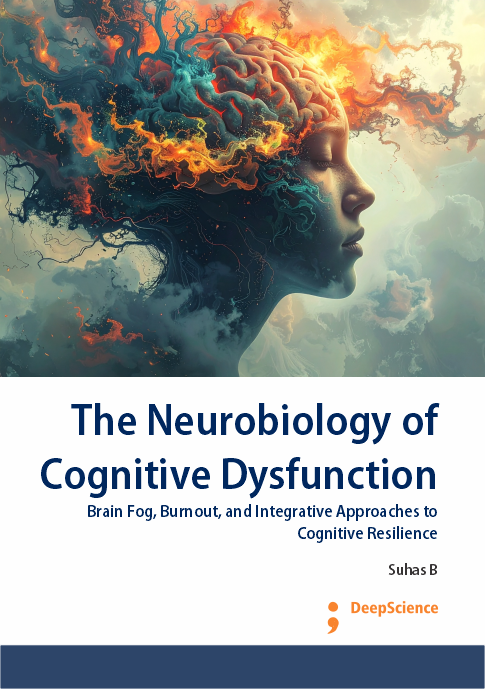The Neurobiology of Cognitive Dysfunction: Brain Fog, Burnout, and Integrative Approaches to Cognitive Resilience
Keywords:
Cognitive, Brain, Neurobiology, Resilience, Dysfunction, Burnout, FogSynopsis
The twenty-first century has brought rapid progress in medicine, technology, and communication. Yet, alongside these advances, modern life has also created challenges that affect mental clarity and well-being. Expressions such as brain fog, burnout, and even brain rot are no longer confined to casual conversation—they have now entered both medical literature and public awareness. Once dismissed as vague or subjective complaints, these states are increasingly recognized as genuine conditions that diminish productivity, creativity, and quality of life.
The purpose of this book is to provide a comprehensive and integrative understanding of these cognitive dysfunctions. Rather than limiting the discussion to clinical or theoretical dimensions, it combines anatomy, physiology, and pathology with real-life experiences, contemporary risk factors, and therapeutic perspectives.
A distinctive emphasis has been placed on naturopathic and holistic strategies, which remain underrepresented in mainstream academic writing. By discussing diet, lifestyle, stress regulation, herbal medicine, and traditional healing systems alongside findings from neuroscience and clinical research, this book seeks to offer a balanced framework for managing early and potentially reversible stages of cognitive decline.
The intended audience includes:
• Healthcare professionals seeking deeper insights into brain fog, burnout, and related disorders.
• Students and scholars of neuroscience, medicine, psychology, and naturopathy in need of an integrative reference.
• General readers aiming to improve clarity of thought, resilience, and long-term cognitive health.
The book follows a structured journey: beginning with brain anatomy and physiology, moving through mechanisms of dysfunction and clinical features, and then exploring naturopathic approaches, prevention, and future research directions. Each chapter draws on evidence and is referenced using the Vancouver style.
Ultimately, the goal is not just to describe the problem but to inspire solutions. Burnout and cognitive fatigue should not be accepted as unavoidable outcomes of modern living. With awareness, timely intervention, and an integrative approach, mental clarity can remain a cornerstone of human health and flourishing.
References
Kandel ER, Schwartz JH, Jessell TM, et al. Principles of Neural Science. 5th ed. McGraw-Hill; 2013.
Petersen RC. Mild cognitive impairment. N Engl J Med. 2011;364(23):2227–2234.
Squire LR, et al. The medial temporal lobe. Annu Rev Neurosci. 2004;27:279–306.
McEwen BS. Stress, adaptation, and disease: Allostasis and allostatic load. Ann N Y Acad Sci. 1998;840:33–44.
Bliss TVP, Collingridge GL. A synaptic model of memory: Long-term potentiation in the hippocampus. Nature. 1993;361(6407):31–39.
Perry VH, Holmes C. Microglial priming in neurodegenerative disease. Nat Rev Neurol. 2014;10(4):217–224.
Pizzorno J, Murray M. Textbook of Natural Medicine. 5th ed. Elsevier; 2020.
Calderón-Garcidueñas L, et al. Air pollution and cognitive decline: Brain effects of urban pollution. J Alzheimers Dis. 2015;45(3):757–770.














